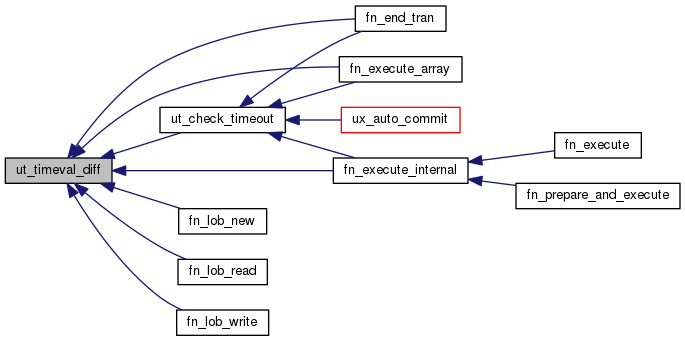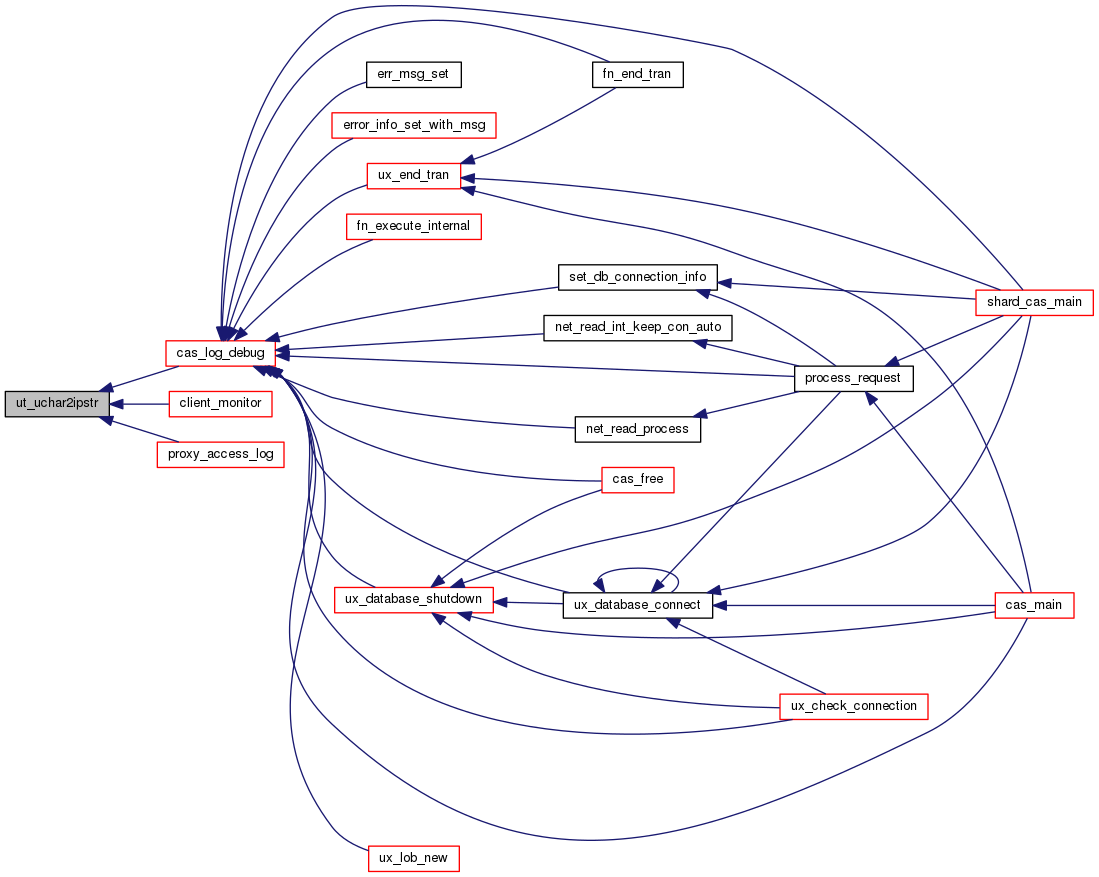|
CUBRID Engine
latest
|
|
CUBRID Engine
latest
|

Go to the source code of this file.
Functions | |
| char * | ut_uchar2ipstr (unsigned char *ip_addr) |
| char * | ut_trim (char *) |
| void | ut_tolower (char *str) |
| void | ut_timeval_diff (struct timeval *start, struct timeval *end, int *res_sec, int *res_msec) |
| int | ut_check_timeout (struct timeval *start_time, struct timeval *end_time, int timeout_msec, int *res_sec, int *res_msec) |
| int ut_check_timeout | ( | struct timeval * | start_time, |
| struct timeval * | end_time, | ||
| int | timeout_msec, | ||
| int * | res_sec, | ||
| int * | res_msec | ||
| ) |
Definition at line 119 of file cas_util.c.
References assert, NULL, and ut_timeval_diff().
Referenced by fn_end_tran(), fn_execute_array(), fn_execute_internal(), and ux_auto_commit().

| void ut_timeval_diff | ( | struct timeval * | start, |
| struct timeval * | end, | ||
| int * | res_sec, | ||
| int * | res_msec | ||
| ) |
Definition at line 101 of file cas_util.c.
Referenced by fn_end_tran(), fn_execute_array(), fn_execute_internal(), fn_lob_new(), fn_lob_read(), fn_lob_write(), and ut_check_timeout().

| void ut_tolower | ( | char * | str | ) |
Definition at line 73 of file broker_log_util.c.
References is_bind_with_size(), NULL, p, and strlen.
Referenced by sch_attr_info(), sch_class_info(), sch_direct_super_class(), sch_primary_key(), sch_queryspec(), and str_like().

| char* ut_trim | ( | char * | ) |
Definition at line 43 of file broker_log_util.c.
References NULL, p, and strlen.
Referenced by dbval_to_net_buf(), fn_prepare_internal(), log_top(), net_buf_column_info_set(), netval_to_dbval(), sql_change_comp_form(), and ux_prepare().

| char* ut_uchar2ipstr | ( | unsigned char * | ip_addr | ) |
Definition at line 43 of file cas_util.c.
Referenced by cas_log_debug(), client_monitor(), and proxy_access_log().
